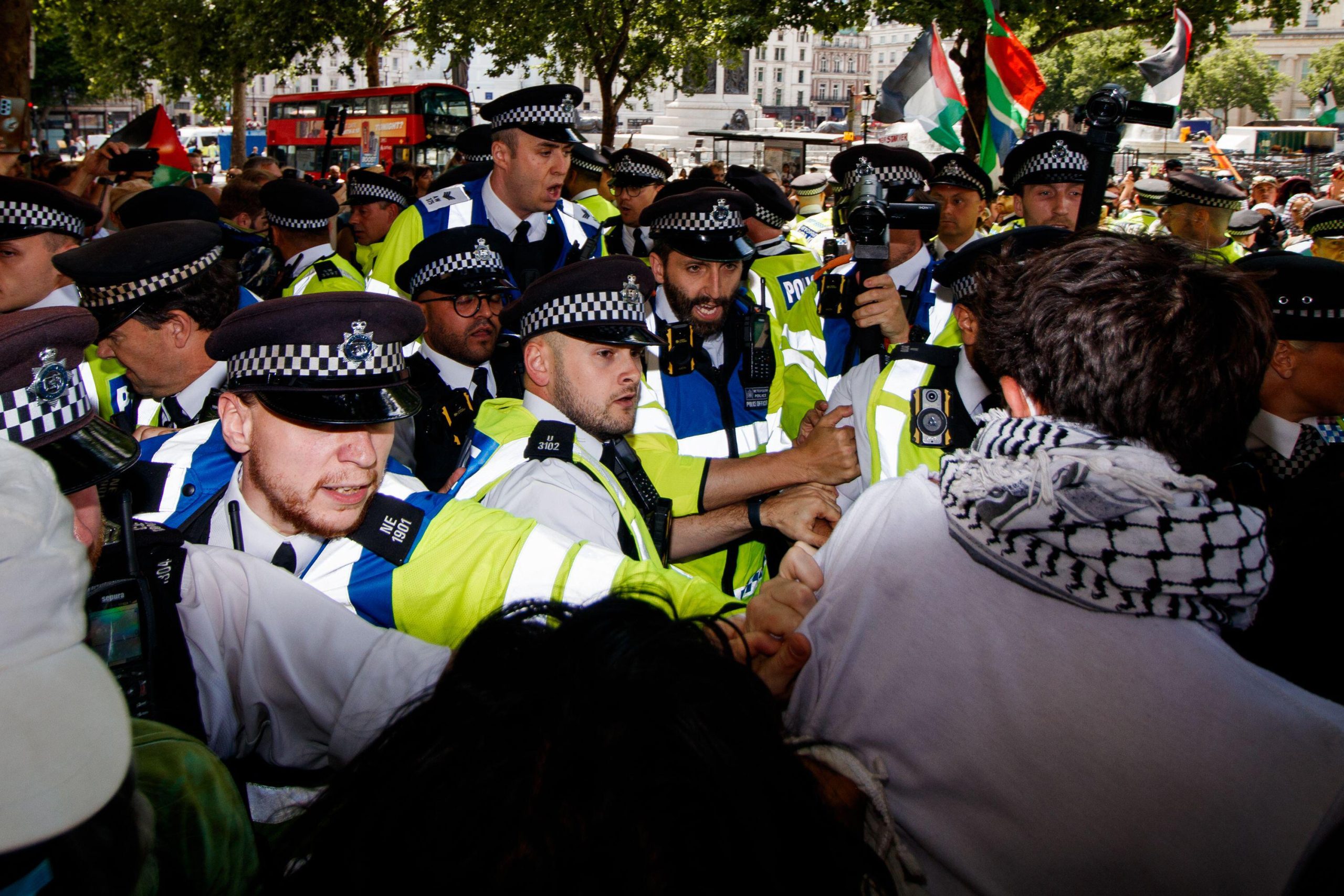It is a time of “firsts” in the UK – the first time a superinjunction has been deployed by the government and the first time a direct-action group has been proscribed as a terrorist organisation primarily on the grounds of property damage. Both examples have impacted freedom of expression and both show how laws in the UK – created with particular and legitimate purposes in mind – can be too broad and too ill-defined to protect our speech rights.
Let’s start with the superinjunction. Last week it was revealed that one was used to prevent the public from knowing about how thousands of Afghans were relocated to the UK after data about their work with British forces was leaked online. This placed them in extreme danger and the government spent hundreds of millions trying to correct course. Before the High Court decision on Tuesday, journalists were banned from disclosing anything about the leak, or even the fact that an injunction existed.
The length of the proceedings made the case a first too. According to court documents the Ministry of Defence originally asked for the superinjunction to last around four months, back in September 2023. By the time the superinjunction was lifted, two years had passed.
Furthermore, the superinjunction was made “against the world”, not just against named media organisations, meaning that any third parties who became aware of the proceedings were gagged. Mr Justice Chamberlain, the judge who oversaw most of the proceedings, had said that granting the superinjunction to the government “is likely to give rise to understandable suspicion that the court’s processes are being used for the purposes of censorship,” adding: “This is corrosive of the public’s trust in government.”
It has also only been a few weeks since Palestine Action was proscribed as a terrorist organisation, with three weekends in a row seeing protesters arrested for expressing their support of the group. When Home Secretary Yvette Cooper proscribed PA, it was noted as unprecedented, the first time an organisation that mainly targets property has been proscribed. Lisa Smart MP said in the parliamentary debate ahead of the proscription that “while there may be compelling legal arguments that the actions of Palestine Action have met the legal definition of terrorism in terms of serious criminal damage… there are still questions as to whether that discretion is proportionate in this case, given the level of threat posed to the general public.” As many argued, and irrespective of what one might think about PA and their tactics, we already have laws to criminalise their more aggressive and destructive ones.
The two cases are of course very different in nature, but both raise important questions about how fit for purpose some legislation in the UK is and how their applications can be oppressive.
In terms of the superinjunction, the procedure was created by the 1998 Human Rights Act. It was intended to balance protection of individuals’ privacy against protection of freedom of expression. The balance however was noted as off from the get-go and that the existence of superinjunctions would act as a serious threat to media freedom. We at Index were against them, except in exceptional circumstances, and recognised the risk of not defining what would qualify as an exceptional circumstance. Today, because of their very nature, we don’t actually know how many are in place and what stories we are missing. What we can say is that the Afghan story was of huge public significance. It concerned thousands of people and billions of taxpayer money and yet was shielded from public debate. Was suppression of the story necessary to protect the security of those impacted, which should absolutely be taken very seriously? The time lag in the leak happening and it being acknowledged would suggest damage had already been done. Was it necessary for the gag order to go on for so long? It’s hard to see that it was.
As for PA, they were proscribed under Section 3 of the Terrorism Act 2000. Someone who expresses support for them is now committing an offence and can face up to 14 years in jail, hence the series of arrests we’ve already seen. Their proscription also carries with it implications for freedom of expression that goes beyond being part of the organisation or directly supporting them. According to Section 12 of the Terrorism Act someone may be criminalised for being reckless in their speech supporting them in reference to how that speech is interpreted by those who hear it. Lawyers and human rights organisations have argued that such wording is too broad and too ill-defined, that it could be easily misapplied.
These are not abstract concerns. Last week, for example, police in Canterbury threatened a woman with arrest for using the phrase “Israel is committing genocide in Gaza”, making a tenuous link between his speech and PA. In another instance a man was arrested for carrying a placard featuring a Private Eye parody of the proscription. Add to these examples legitimate fears that many others will self-censor to remain fully within the law.
The Labour government has just rounded off their first year in power. Prime Minister Keir Starmer has said the past government have “serious questions to answer” in terms of how the breach and the superinjunction happened. It’s heartening to see that it’s being taken seriously and we can only hope that as they review the leak they too review whether superinjunctions fulfil anything useful in the UK, or at least will consider how the definitions around when they can be used could be better defined. At the same time it’s the Labour government who proposed the proscription of PA. We’re concerned we’re only at the start of seeing its free speech implications.
As Labour enter their second year in power, a commitment to freedom of expression would be welcomed. Addressing how appropriate versus oppressive the framing of some of our existing laws are would be welcomed.






